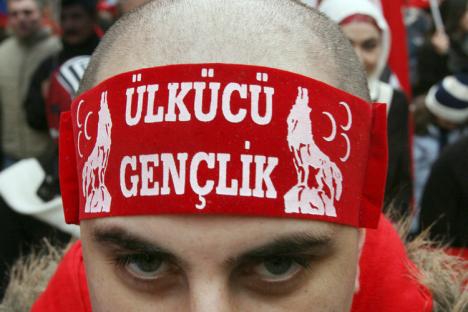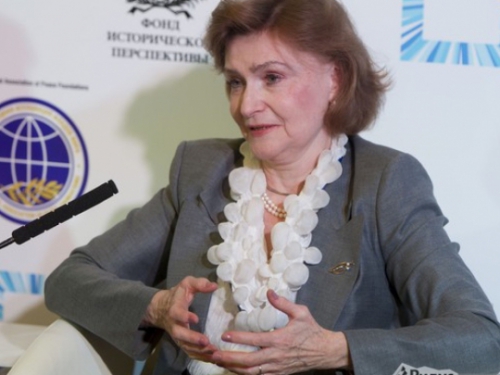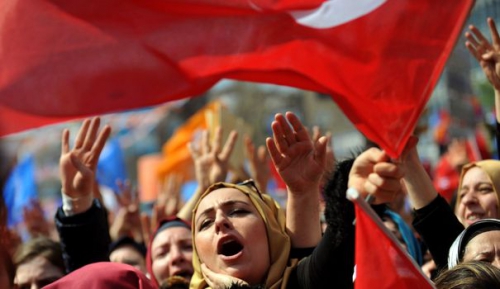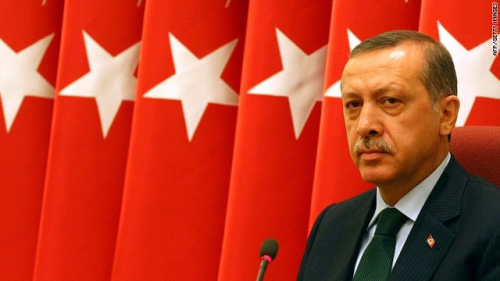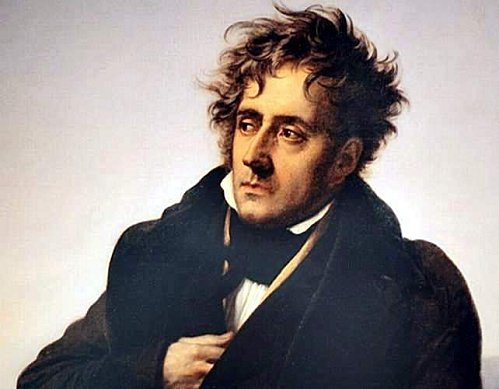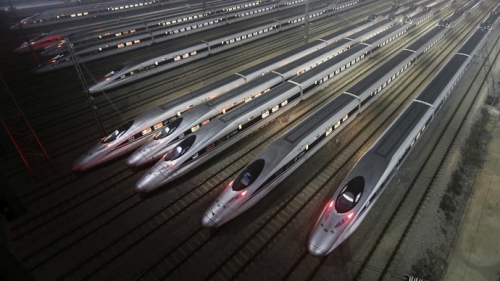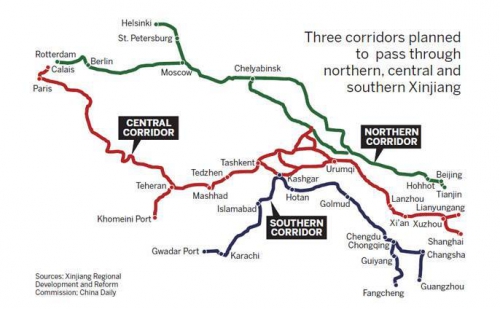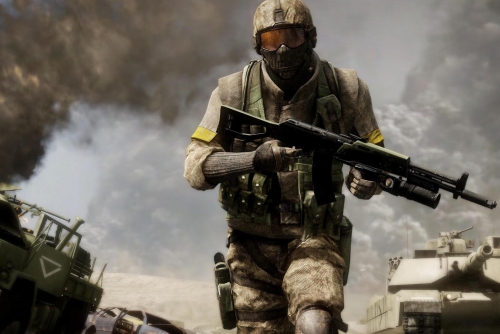Eurasia y Europa: diálogo de “Grandes Espacios”
por Natella Speranskaja
Ex: http://paginatransversal.wordpress.com
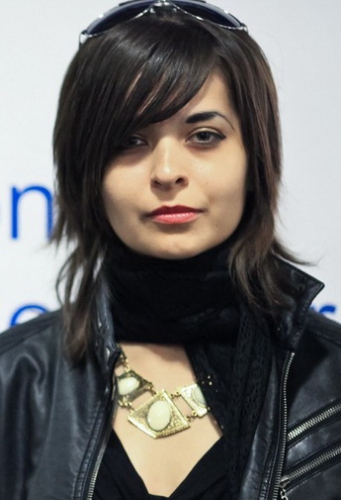 Carl Schmitt consideraba la tierra como un todo único y buscaba su misión global. Este “todo” fue recogido por Schmitt en el concepto de Nomos. Schmitt usó la palabra griega derivada del verbo «nemein», que es idéntico al alemán “nehmen”, “tomar”. El Nomos comprende tres actos del drama: la “toma”, “la división y distribución de lo tomado”, “la explotación y el uso de lo tomado y distribuido”. Según Schmitt, el Nomos de la Tierra existió siempre. El Primer Nomos es descrito como la “tierra prometida” de los pueblos antiguos. Es el Nomos de la antigüedad y la Edad Media. Dejó de existir después de la exploración de los grandes océanos y el continente americano. Así comenzó el Segundo Nomos, el Nomos de los estados nacionales soberanos que tenían estructura eurocéntrica. Los acontecimientos de la Segunda Guerra Mundial condujeron a su destrucción, por lo que la tierra fue dividida en este y oeste, ambos en un estado de “guerra fría”. No se trata de meros opuestos geográficos, sino de contraposiciones más originales y profundas. Carl Schmitt escribió: “Toda la historia de la confrontación planetaria de Oriente y Occidente en su totalidad es reducible al dualismo fundamental de los elementos: la tierra y el agua, la tierra y el mar. Lo que ahora llamamos el Oriente, es una sola masa de sólida tierra: Rusia, China y la India – un enorme pedazo de tierra, la “Tierra Media” [“Middle Earth”], como es llamada por el gran geógrafo inglés Sir Halford Mackinder. Lo que hoy llamamos Occidente, es uno de los océanos mundiales, un hemisferio donde se sitúan los océanos Atlántico y Pacífico. La confrontación de las potencias, de los mundos marítimo y terrestre, es la verdad global que está en el corazón de la explicación del dualismo de civilizaciones que genera constantemente una tensión planetaria y estimula todo el proceso de la historia”. Por lo tanto, el nacimiento de un tercer Nomos fue causado por la división del mundo entre el Oeste y el Este. Sin embargo, fue destruido con la caída del muro de Berlín y el colapso de la Unión Soviética.
Carl Schmitt consideraba la tierra como un todo único y buscaba su misión global. Este “todo” fue recogido por Schmitt en el concepto de Nomos. Schmitt usó la palabra griega derivada del verbo «nemein», que es idéntico al alemán “nehmen”, “tomar”. El Nomos comprende tres actos del drama: la “toma”, “la división y distribución de lo tomado”, “la explotación y el uso de lo tomado y distribuido”. Según Schmitt, el Nomos de la Tierra existió siempre. El Primer Nomos es descrito como la “tierra prometida” de los pueblos antiguos. Es el Nomos de la antigüedad y la Edad Media. Dejó de existir después de la exploración de los grandes océanos y el continente americano. Así comenzó el Segundo Nomos, el Nomos de los estados nacionales soberanos que tenían estructura eurocéntrica. Los acontecimientos de la Segunda Guerra Mundial condujeron a su destrucción, por lo que la tierra fue dividida en este y oeste, ambos en un estado de “guerra fría”. No se trata de meros opuestos geográficos, sino de contraposiciones más originales y profundas. Carl Schmitt escribió: “Toda la historia de la confrontación planetaria de Oriente y Occidente en su totalidad es reducible al dualismo fundamental de los elementos: la tierra y el agua, la tierra y el mar. Lo que ahora llamamos el Oriente, es una sola masa de sólida tierra: Rusia, China y la India – un enorme pedazo de tierra, la “Tierra Media” [“Middle Earth”], como es llamada por el gran geógrafo inglés Sir Halford Mackinder. Lo que hoy llamamos Occidente, es uno de los océanos mundiales, un hemisferio donde se sitúan los océanos Atlántico y Pacífico. La confrontación de las potencias, de los mundos marítimo y terrestre, es la verdad global que está en el corazón de la explicación del dualismo de civilizaciones que genera constantemente una tensión planetaria y estimula todo el proceso de la historia”. Por lo tanto, el nacimiento de un tercer Nomos fue causado por la división del mundo entre el Oeste y el Este. Sin embargo, fue destruido con la caída del muro de Berlín y el colapso de la Unión Soviética.
La interpretación de Schmitt de “tres Nomos de la Tierra” nos lleva a la pregunta: ¿cuál será el cuarto Nomos de la Tierra? Alexander Dugin, el fundador de la teoría de un mundo multipolar, el fundador de la escuela rusa de geopolítica, cree que el nuevo Nomos de la Tierra será un Nomos de lógica gran continental del continente euroasiático. Sin duda, la peor opción posible sería un Nomos unipolar, globalista. Cuál Nomos será el establecido depende de la decisión estratégica del Heartland, Rusia, la civilización de la tierra.
El politólogo italiano Tiberio Graziani piensa que Rusia “tiene todo lo necesario para cumplir con el papel histórico de piedra angular de todo el sistema mundial”, y se refiere a su ubicación en el corazón de Eurasia como uno de sus elementos más importantes. Es por eso que todas las decisiones estratégicas de los atlantistas implican la fragmentación del Heartland, considerando que este proceso proporcionará el acceso a un orden unipolar. Alexander Dugin dice: “Por eso, de si Rusia puede ser suficientemente debilitada, dividida y desestabilizada, y sus fragmentos sometidos a poderes externos, depende en gran medida el destino de la globalización”. Y más aún: “Para cualquier persona que se tome en serio la contra hegemonía estadounidense, la globalización y la dominación planetaria del Occidente (atlantismo), el axioma debe ser la siguiente declaración: el destino del orden mundial se decide por el momento solamente en Rusia, por Rusia y a través de Rusia”. Para describir el momento en el que vivimos ahora, el prominente sociólogo Zygmunt Bauman aplica el concepto de interregno – así se llamaba en la antigua Roma el período entre la muerte del César y la llegada del siquiente. Es un estado de inestabilidad, de incertidumbre, de imprevisibilidad, cuando la demolición del viejo orden es tan obvia como el surgimiento del nuevo. Pero lo que vaya a ser este nuevo orden (y, en consecuencia, el nuevo Nomos) no se sabe. En el contexto de los cambios del nuevo orden mundial, podemos hablar de un desplazamiento paradigmático desde el “momento unipolar” hacia la formación de un orden mundial multipolar. En otras palabras, el foco debería ponerse en el final de la era de la unipolaridad, porque existen todas las condiciones esenciales para la realización del proyecto alternativo. Según Huntington, el estado unipolar es capaz de “hacer frente eficazmente a todos los grandes problemas internacionales por sí solo, y ninguna de las uniones de otros estados puede, incluso hipotéticamente, ser capaz de detenerlo”. Es difícil negar que la potencia hegemónica representada por los Estados Unidos no tiene ahora un rival serio, ya sea una coalición de estados o, aunque parezca increíble, un solo estado que muestre un potencial tan fuerte que implique inevitablemente la rápida restauración del orden bipolar.
Según Zygmunt Bauman, hace unos 60-70 años ocurrió un hecho que contribuyó a un cambio fundamental en la política mundial: la brecha entre Macht [Fuerza] y Staat [Estado] – en otras palabras, entre la Fuerza y la Política, la Fuerza y el Estado (que son aspectos integrales del Poder) – condujo a la situación en la que Macht (la Fuerza) se trasladó al espacio supranacional. Por lo tanto, el Estado-nación ya no podía controlarla. En el paradigma unipolar concretamente los estados nacionales son los actores de las relaciones internacionales. Dicha brecha significa ni más ni menos un deslizamiento gradual hacia la no-polaridad. Es decir, según Richard Haass, director de Estudios de Política Exterior en el Instituto Brookings y jefe del CFR, esto será lo que determine las relaciones internacionales en el siglo XXI. Los estados-nación son casi privados de la posibilidad de la eficiencia “de hacer cosas” (como Bauman entiende Macht), surgiendo un estado de parálisis política. Antonio Gramsci trata el interregno como un período en el que lo viejo ya no funciona, y lo nuevo aún no ha aparecido.
Estamos “atrapados” entre la unipolaridad y la multipolaridad, y no tenemos ni idea de cuál debería ser la solución a esta situación. Por supuesto, surge la pregunta: ¿qué hacer? Y, sobre todo, a los propios estados-nación, que de iure retuvieron la capacidad de tomar decisiones. Pero Zygmunt Bauman sostiene con razón que, en las actuales circunstancias, la pregunta debería ser formulada de una manera diferente: ¿quién va a hacer lo que es necesario en lugar de lo que hay que hacer? ¿Qué actor asumirá la responsabilidad de las acciones que resuelvan los problemas fundamentales? Claro es que nosotros no lo consideramos como los estados-nación. En su lugar, nos dirigimos a la teoría desarrollada por Alexander Dugin, la Teoría del Mundo Multipolar.
En su libro con el mismo título, Dugin ofrece una imagen clara de lo que está sucediendo hoy en el campo de las relaciones internacionales: cuando el modelo bipolar del orden mundial cambió a uno unipolar, esto vino a significar el triunfo de la ideología liberal-democrática. Occidente ha modelado los valores y directrices de un sistema que se impone sobre el mundo como universal. Por lo tanto, Occidente llegó a la aplicación constante del control (la dictadura) de las esferas cognitivas y estratégicas. El campo de las relaciones internacionales se convirtió en la “Ciencia Norteamericana”, el contenido de las discusiones se redujo a la confrontación polémica entre realistas y liberales. El propio cuerpo diplomático se formó en el mundo unipolar y en el discurso occidental, en la mentalidad occidental, donde los actores políticos son los estados nacionales. Otro modelo de orden mundial, a saber, el modelo multipolar, implica una forma de organización de los espacios en base a varios actores, “civilizaciones”, como ha señalado acertadamente Samuel Huntington. Esto nos conduce a la formación de un nuevo cuerpo diplomático y un nuevo lenguaje diplomático basados en un orden mundial multipolar. Y los pensadores políticos más progresistas ya han llegado a alguna conclusión sobre la necesidad de cambiar el paradigma de las relaciones internacionales. Uno de ellos acaba de plantear la cuestión de qué será lo próximo, otros han encontrado la respuesta y aplican libremente los conceptos básicos del nuevo sistema. Es imposible no reconocer el hecho de que la gran mayoría de las figuras políticamente comprometidas permanecen bajo el viejo paradigma, sin percibir el cambio en curso que dará comienzo al nuevo período histórico, cambiando por completo el panorama de la política mundial. El mundo unipolar ya es el ayer. Aquí y ahora estamos discutiendo el cambio del paradigma unipolar a uno multipolar, poli-civilizacional.
La teoría del mundo multipolar sugiere establecer nuevos actores en las relaciones internacionales, que son las civilizaciones, y cada una de ellas, por definición, tiene un centro estratégico que sirve como sujeto de diálogo en las relaciones internacionales y, por lo tanto, como sujeto de poder. La transición de los estados nacionales a las civilizaciones es una consecuencia inevitable de la ruptura descrita por Zygmunt Bauman.
El profesor Adam Roberts, especialista en Relaciones Internacionales, señala la pérdida del papel de liderazgo de los Estados Unidos en el orden mundial actual. A la pregunta sobre quién ejercerá como sustituto, da una respuesta completamente obvia: nadie. Más precisamente, todavía no hemos entrado en el período de interregno, solamente nos hemos acercado, y todo lo que está sucediendo en la política global es la agonía del César moribundo (los EEUU).
La genuina aparición del interregno sucederá con la pérdida definitiva del papel de Estados Unidos como potencia hegemónica en el mundo y la cancelación del “momento unipolar”. Es aquí cuando aparece el peligro: en el período de interregno, y en la aplicación coherente de las etapas de formación de un orden mundial multipolar llegará “la geometría variable” de la no polaridad, y todo estará en el crisol de la globalización; estamos inmersos en la modernidad líquida (Z. Bauman), cuya característica principal es la “no-direccionalidad de los cambios”, es decir, la ausencia de una dirección estricta, de una directriz, lo que en última instancia nos deja sin preparación para responder a los desafíos repentinos, difíciles de determinar desde cualquier tipo de cálculo o proyección. El colapso de la Unión Soviética ocurrió repentinamente, como el relámpago, cambiando por completo el panorama de la historia. La no-polaridad que parece venir puede llegar a ser un respiro necesario, un período de posibilidad de formación del pleno valor del nuevo modelo de orden mundial, pues es imposible negar el hecho de que el cambio de paradigma, seguido por la demolición de numerosas estructuras, no será capaz de crear rápidamente, en todos los ámbitos de la vida política, todas las condiciones necesarias para la entrada en el orden multipolar. La no polaridad, el interregno en el siglo XXI, es el funeral del César retirado y la preparación para la entronización de los nuevos gobernantes (en plural), es decir, el ascenso de los polos, de los centros de poder.
La no-polaridad supone la “decapitación” de los EEUU, pero al mismo tiempo puede ser definida como un intento de la potencia hegemónica por mantener su influencia a través de la auto-dispersión, de la disolución. Bajo estas circunstancias, es estrictamente necesario evitar retrasos, quedarse atrapado en el entorno post-liberal, así como humildad en una “no-polaridad coherente”. Los nuevos actores deben desafiar ahora la posmoderna “no direccionalidad de los cambios” y tomar conscientemente la responsabilidad absoluta de las decisiones y de las acciones estratégicas en el campo de la práctica política. El principal investigador asociado de la Fundación New America, Parag Khanna, analizando la situación actual y la precaria situación de los EEUU, aborda la función crítica de la diplomacia, hacia la cual debería ser desplazado el enfoque. Para la mejora de la estructura diplomática mundial se contempla la responsabilidad de la consolidación de la hegemonía estadounidense. Sin embargo, esto no tiene en cuenta el hecho de que el lenguaje diplomático está experimentando un reformateo significativo en el contexto del cambio paradigmático al modelo multipolar, y este proceso es irreversible. En la actualidad tenemos que hablar del diálogo de civilizaciones. El diálogo se construye en un nivel completamente diferente, que está más allá de las reglas del diálogo entre los estados nacionales (es decir, fuera del discurso occidental impuesto), con los EEUU teniendo el poder de la toma de decisiones final. A menos que entendamos que la batalla por la dominación del mundo no es entre civilizaciones, sino entre una sola civilización (la occidental) contra todos los “otros” – y en la que se ofrecen sólo dos opciones: 1) estar del lado de esa civilización, 2) o estar contra ella defendiendo el derecho a la propia independencia y singularidad – no seremos capaces de formular un nuevo lenguaje diplomático para el diálogo de civilizaciones. Y esto debería ser entendido, sobre todo, por la élite de la civilización responsable, según Alexander Dugin, de conducir el diálogo. Si todos los “otros” están de acuerdo con el proyecto unipolar, nuestra batalla está perdida, pero si escogen una opción radicalmente diferente, estaremos a la espera del “ascenso del resto” (Fareed Zakaria). Deberíamos tener en cuenta que el mundialmente famoso politólogo británico Paul Kennedy, ha expresado su preocupación por la aparición de diferencias ideológicas entre los EEUU y Europa, debido a la oposición a uno de los proyectos del orden mundial – unipolar o multipolar. En el entorno actual deberíamos confiar, no sólo en el aumento de los conflictos entre Europa y América, sino preparar la situación de ruptura y de división de la primera respecto a la influencia hegemónica de la segunda. Aquí Rusia tiene un papel especial.
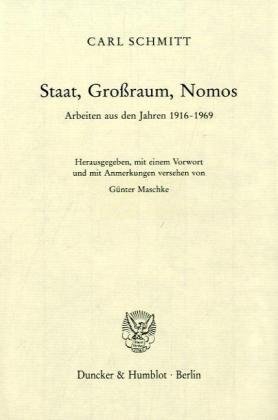 Sin embargo, debemos admitir que durante las últimas décadas, Rusia se alejó cada vez más de su propósito original de ser un puente entre Oriente y Occidente. El interregno puede ser nuestra oportunidad de recuperarse, una oportunidad para Rusia para convertirse y ser. La teoría de un mundo multipolar puede ser considerada como el punto de partida del fin de la era unipolar y el de entrada en el período “post-norteamericano”, una característica del cual será la presencia de varios polos (los sujetos del diálogo inter-civilizacional), y la segura eliminación de la crisis de identidad, porque en un mundo multipolar la identidad adquiere un carácter civilizatorio. Hoy nuestro diálogo con Europa es un diálogo de “grandes espacios”; en el nuevo sistema de relaciones internacionales el Großraum [el “Gran espacio” de Carl Schmitt] se convierte en un concepto operativo de la multipolaridad. Alexander Dugin ofrece el modelo “CUATRO polar” o “cuadri-polar” del mundo, que consta de cuatro zonas.
Sin embargo, debemos admitir que durante las últimas décadas, Rusia se alejó cada vez más de su propósito original de ser un puente entre Oriente y Occidente. El interregno puede ser nuestra oportunidad de recuperarse, una oportunidad para Rusia para convertirse y ser. La teoría de un mundo multipolar puede ser considerada como el punto de partida del fin de la era unipolar y el de entrada en el período “post-norteamericano”, una característica del cual será la presencia de varios polos (los sujetos del diálogo inter-civilizacional), y la segura eliminación de la crisis de identidad, porque en un mundo multipolar la identidad adquiere un carácter civilizatorio. Hoy nuestro diálogo con Europa es un diálogo de “grandes espacios”; en el nuevo sistema de relaciones internacionales el Großraum [el “Gran espacio” de Carl Schmitt] se convierte en un concepto operativo de la multipolaridad. Alexander Dugin ofrece el modelo “CUATRO polar” o “cuadri-polar” del mundo, que consta de cuatro zonas.
En la primera zona, bajo el control total de los Estados Unidos, hay dos o tres “grandes espacios.” Tenemos dos “grandes espacios” mediante la combinación de los EEUU y Canadá por un lado, e Iberoamérica por otro. Según Alexander Dugin, pueden surgir tres “grandes espacios” cuando “dividimos aquellos países de Iberoamérica suficientemente bien integrados con los EEUU y que están completamente bajo su control, y aquellos que tienden a crear su propia zona geopolítica, desafiando a los EEUU”.
La segunda zona es la zona Euro-Africana, con la Unión Europea como su polo indudable. Aquí aparecen tres “grandes espacios”: la Unión Europea, el África negra y el Großraum árabe.
La tercera zona es Eurasia, con Rusia (el Heartland) como su polo. El profesor Dugin indica que hay también una serie de centros regionales de poder, como son Turquía (si elige el camino de Eurasia), Irán, Pakistán y la India. Por lo tanto, la zona de Eurasia se compone de varios “grandes espacios”: Rusia y los países de la CEI son el Großraum ruso-euroasiático; tres “grandes espacios” son también Turquía, Irán, e India y Pakistán.
La cuarta zona es la región del Pacífico. Su polo puede ser ya sea China (que es un “gran espacio”), o Japón (un potencial Großraum que tiene todos los factores esenciales -económicos, geopolíticos, tecnológicos, etc.- para su recuperación).
Al justificar las directrices básicas para la acción práctica de construir un mundo multipolar, el profesor Dugin se centra en las siguientes direcciones:
1. Reorganización estratégica del Heartland.
Esto implica la actividad geopolítica de la “tierra media” y la puesta en práctica de proyectos de integración dirigidos a fortalecer el modelo multipolar.
2. Cambios en la mentalidad de la élite política de Rusia.
Principalmente se centra en la adquisición de pensamiento geopolítico, así como un alto nivel de competencia en el campo de las ciencias sociales, la sociología y la historia. “La élite de Rusia debe entenderse a sí misma como la élite del Heartland, debe pensar en categorías euroasiáticas, no sólo a escala nacional, siendo al tiempo claramente consciente de la no aplicabilidad del escenario atlantista y globalista para Rusia” – escribe A. Dugin. No podemos hablar de ningún despertar de la élite hasta que se haga una elección consciente hacia el eurasianismo, rechazando las ciegas tentativas de jugar a los escenarios anti-rusos de las estrategias atlantistas.
3. El modelo de la construcción de las relaciones entre Rusia y Estados Unidos.
Comprendiendo las destructivas políticas estadounidenses encaminadas a desmantelar Rusia por el control absoluto de toda Eurasia, dichas relaciones se convierten en irreversiblemente hostiles. Tenemos que emprender acciones drásticas para evitar la presencia de la OTAN en el “gran espacio” de Eurasia y el debilitamiento del Heartland.
4. El modelo de la construcción de relaciones con Europa.
Este modelo implica una asociación estratégica con los países, adheriéndose a la política de la tradición continental – Francia, Alemania, Italia y España. Aquí es apropiado hablar sobre el proyecto del eje “París-Berlín-Moscú”. Otra situación distinta se presenta con los países de la “nueva Europa”, así como Inglaterra, que están orientados contra Rusia y tienen una tendencia a adaptarse a las exigencias de Washington.
5. El proyecto “Gran Europa del Este.”
Este proyecto incluye a los eslavos (eslovacos, checos, polacos, búlgaros, serbios, croatas, eslovenos, bosnios, macedonios, serbios musulmanes), y a los ortodoxos (macedonios, serbios, búlgaros, griegos y rumanos). El Prof. Dugin dice que los húngaros son el único pueblo que no entra en la categoría “ortodoxos”, y al mismo tiempo no puede ser llamado “eslavo”. Los húngaros tienen un origen eurasiático-turanio.
6. Los países del Heartland y del CEI occidentales.
Se trata de la integración multipolar de Rusia, Ucrania y Bielorrusia, que pertenecen a la zona del Heartland, en una sola estructura estratégica. Esta acción política evitará el riesgo de entrada de Bielorrusia y Ucrania en la OTAN. Se presta especial atención a Moldavia, cuya integración con Rumania, que es una parte de la OTAN, parece imposible hasta la ejecución del proyecto de la “Gran Europa del Este.”
7. Oriente Medio euroasiático y el papel de Turquía.
El Prof. Dugin menciona el «Proyecto del Gran Medio Oriente» estadounidense en relación con Oriente Medio. El mismo implica la democratización y la modernización de las sociedades de Oriente Medio, y el fortalecimiento de la presencia militar de los EEUU y la OTAN. Guiados por intereses antagónicos, la estrategia del Heartland en esta dirección debe incluir acciones políticas dirigidas a la salida de Turquía de la OTAN y la creación del eje “Moscú-Ankara.” Por otra parte, el proyecto del eje “Moscú-Teherán” se debe tomar con la máxima atención. Según Alexander Dugin, Irán es un “espacio estratégico que resuelve automáticamente el problema de la conversión del Heartland en una fuerza en el mundo global”. Ni Rusia ni Irán deben permitir la ejecución del escenario establecido en el proyecto de la “Gran Asia Central” (Greater Central Asia Partnership). Su puesta en marcha conduciría inevitablemente a la aparición del “cordón sanitario” que separaría Rusia de Irán. Adicionalmente, al incluir países como Georgia, Afganistán, Armenia, Azerbaiyán, Kirguistán, Kazajstán, Uzbekistán, este cordón dejaría a estos países controlados por la influencia norteamericana. La unión de Rusia e Irán, por supuesto, resolverá otro problema fundamental, es decir, se abrirá el “anillo de la anaconda”, privando a los estrategas estadounidenses de cualquier posibilidad de impedir las operaciones marítimas de Rusia.
La estrategia del Heartland debe incluir proyectos de integración de Rusia, Kazajstán y Tayikistán en un único espacio económico y aduanero. A su vez, la relación con Pakistán debe ser construida en estricta conformidad con la estrategia de desalojo de las fuerzas estadounidenses de esta zona. Alexander Dugin apunta a la necesidad de un nuevo modelo de relaciones con la mayoría pastún de Afganistán.
8. El eje “Moscú-Nueva Delhi”.
Las relaciones con el “gran espacio” políticamente neutral de la India deberían estar dirigidas a lograr la asociación. El principal objetivo de este eje es impedir los intentos de Washington de desplegar su dominio en la región del sur de Asia.
9. Relaciones ruso-chinas.
El prof. Dugin se centra en dos cuestiones difíciles, como son:
– La propagación demográfica de los chinos en zonas poco pobladas de Siberia;
– La influencia de China en Asia Central.
Es necesario construir una relación equilibrada con China, centrándose en el punto fundamental de contacto estratégico, de apoyo de la idea de un mundo multipolar.
10. Relaciones ruso – japonesas.
El prof. Dugin indica la necesidad de Japón de liberarse de la influencia estadounidense y el apoyo de Japón como potencia regional soberana. Aquí es apropiado hablar del proyecto del eje “Moscú – Tokio” como parte integrante de la política asiática de Eurasia. “La alianza con Japón es vital – dice Alexander Dugin en su obra “Las bases de la geopolítica“- el eje Moscú-Tokio, contrariamente al eje Moscú-Beijing, es importante y proporciona tales perspectivas para la construcción del imperio continental que finalmente compondrá una Eurasia geopolíticamente completa, debilitando sumamente al mismo tiempo el imperio atlantista de Occidente, si no destruyéndolo finalmente”.
11. La geopolítica de la zona ártica.
Los siguientes países tienden a controlar esta zona: EEUU, Canadá, Noruega, Dinamarca y Rusia. Todos estos países (excepto Rusia) son miembros de la OTAN. Conquistando territorios en la región polar, y uniéndose a la carrera para explotar grandes depósitos de minerales, Rusia incluyó en sus planes futuros la creación de un sistema de comunicación y seguimiento en el Ártico a gran escala. Rusia reclama una zona polar con un tamaño de 1,2 millones de kilómetros cuadrados, con el entrante Polo Norte. En 2011, un valiente movimiento de los investigadores rusos que plantaron una bandera rusa en el fondo marino del Océano Ártico, fue muy publicitado por los medios de comunicación estadounidenses.
No hay duda de que entramos en una batalla por cambios fundamentales en las reglas del discurso político, realizando la tarea de socavar los principios básicos de la hegemonía occidental. La ejecución del proyecto multipolar, en contra de las consideraciones de los politólogos occidentales escépticos, depende del curso político al cual Rusia se adhiera. La elección hacia el eurasianismo muestra un acercamiento a la disposición de dar el siguiente paso en la construcción de un nuevo orden mundial.
(Traducción Página Transversal)
Fuente: Fourth Way Platform
Extraído de: La Cuarta Teoría Política en español.



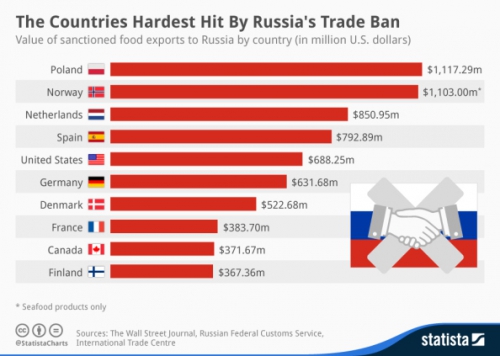

 del.icio.us
del.icio.us
 Digg
Digg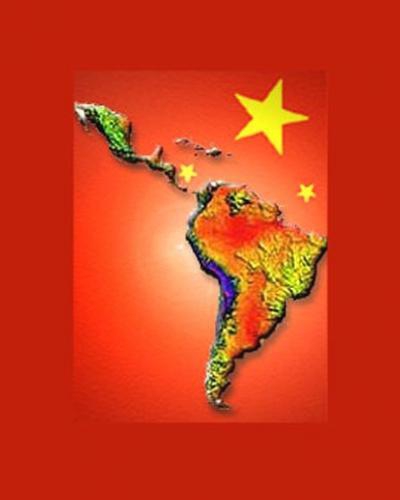


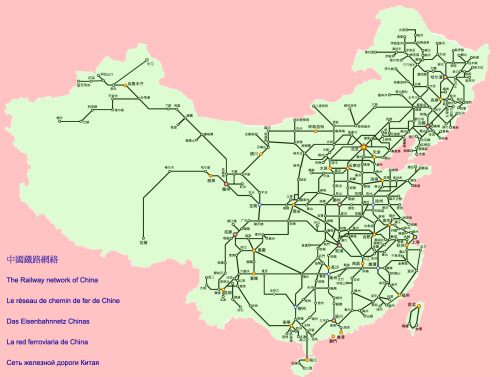



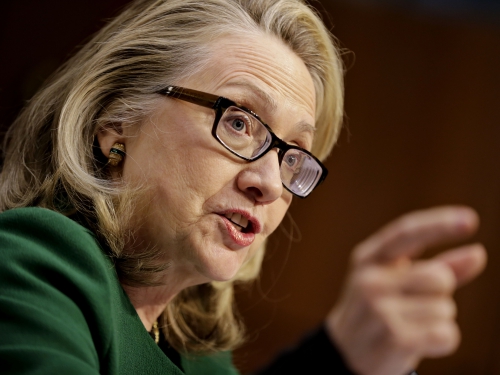
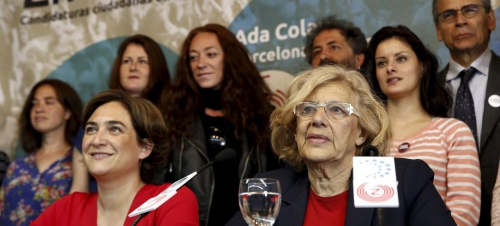
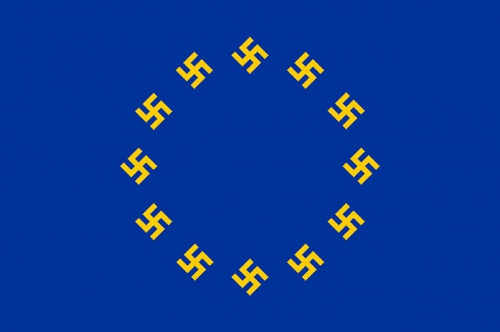
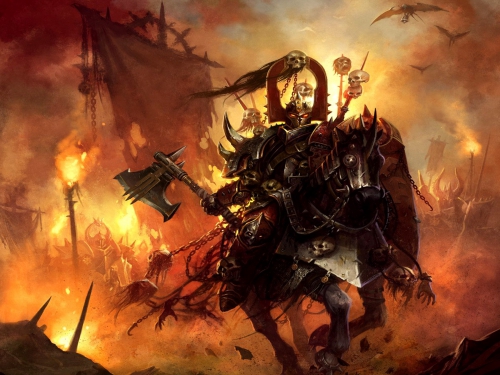
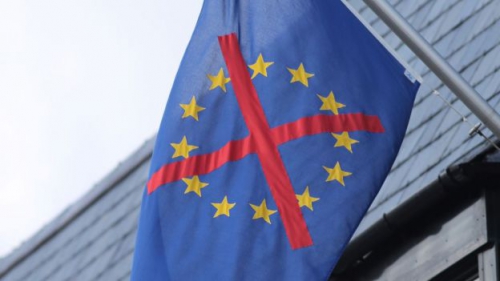
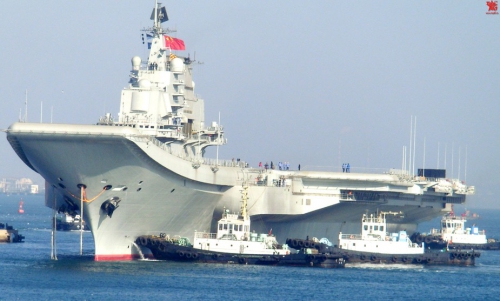
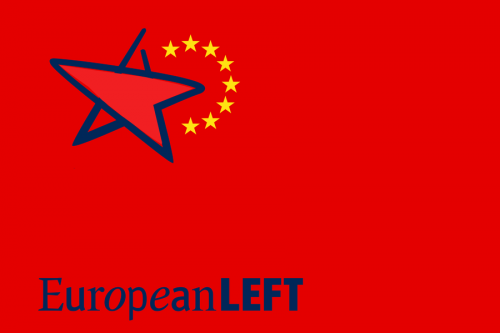
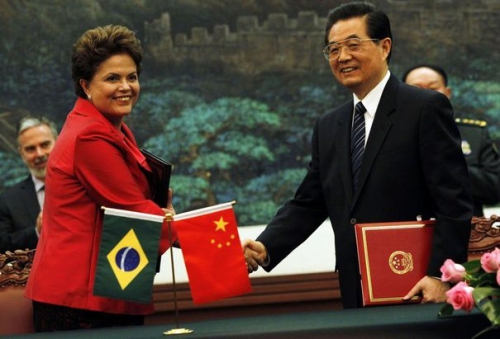
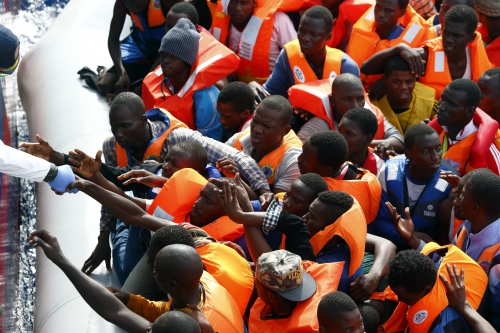
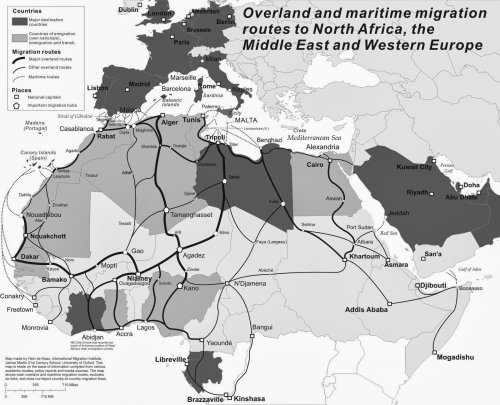


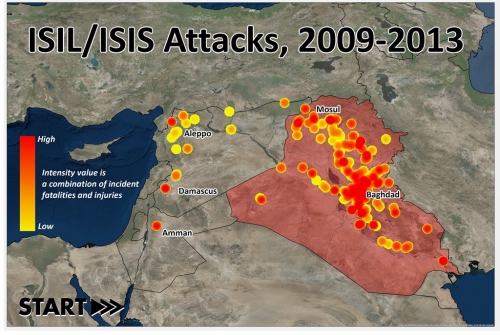

 Carl Schmitt consideraba la tierra como un todo único y buscaba su misión global. Este “todo” fue recogido por Schmitt en el concepto de Nomos. Schmitt usó la palabra griega derivada del verbo «nemein», que es idéntico al alemán “nehmen”, “tomar”. El Nomos comprende tres actos del drama: la “toma”, “la división y distribución de lo tomado”, “la explotación y el uso de lo tomado y distribuido”. Según Schmitt, el Nomos de la Tierra existió siempre. El Primer Nomos es descrito como la “tierra prometida” de los pueblos antiguos. Es el Nomos de la antigüedad y la Edad Media. Dejó de existir después de la exploración de los grandes océanos y el continente americano. Así comenzó el Segundo Nomos, el Nomos de los estados nacionales soberanos que tenían estructura eurocéntrica. Los acontecimientos de la Segunda Guerra Mundial condujeron a su destrucción, por lo que la tierra fue dividida en este y oeste, ambos en un estado de “guerra fría”. No se trata de meros opuestos geográficos, sino de contraposiciones más originales y profundas. Carl Schmitt escribió: “Toda la historia de la confrontación planetaria de Oriente y Occidente en su totalidad es reducible al dualismo fundamental de los elementos: la tierra y el agua, la tierra y el mar. Lo que ahora llamamos el Oriente, es una sola masa de sólida tierra: Rusia, China y la India – un enorme pedazo de tierra, la “Tierra Media” [“Middle Earth”], como es llamada por el gran geógrafo inglés Sir Halford Mackinder. Lo que hoy llamamos Occidente, es uno de los océanos mundiales, un hemisferio donde se sitúan los océanos Atlántico y Pacífico. La confrontación de las potencias, de los mundos marítimo y terrestre, es la verdad global que está en el corazón de la explicación del dualismo de civilizaciones que genera constantemente una tensión planetaria y estimula todo el proceso de la historia”. Por lo tanto, el nacimiento de un tercer Nomos fue causado por la división del mundo entre el Oeste y el Este. Sin embargo, fue destruido con la caída del muro de Berlín y el colapso de la Unión Soviética.
Carl Schmitt consideraba la tierra como un todo único y buscaba su misión global. Este “todo” fue recogido por Schmitt en el concepto de Nomos. Schmitt usó la palabra griega derivada del verbo «nemein», que es idéntico al alemán “nehmen”, “tomar”. El Nomos comprende tres actos del drama: la “toma”, “la división y distribución de lo tomado”, “la explotación y el uso de lo tomado y distribuido”. Según Schmitt, el Nomos de la Tierra existió siempre. El Primer Nomos es descrito como la “tierra prometida” de los pueblos antiguos. Es el Nomos de la antigüedad y la Edad Media. Dejó de existir después de la exploración de los grandes océanos y el continente americano. Así comenzó el Segundo Nomos, el Nomos de los estados nacionales soberanos que tenían estructura eurocéntrica. Los acontecimientos de la Segunda Guerra Mundial condujeron a su destrucción, por lo que la tierra fue dividida en este y oeste, ambos en un estado de “guerra fría”. No se trata de meros opuestos geográficos, sino de contraposiciones más originales y profundas. Carl Schmitt escribió: “Toda la historia de la confrontación planetaria de Oriente y Occidente en su totalidad es reducible al dualismo fundamental de los elementos: la tierra y el agua, la tierra y el mar. Lo que ahora llamamos el Oriente, es una sola masa de sólida tierra: Rusia, China y la India – un enorme pedazo de tierra, la “Tierra Media” [“Middle Earth”], como es llamada por el gran geógrafo inglés Sir Halford Mackinder. Lo que hoy llamamos Occidente, es uno de los océanos mundiales, un hemisferio donde se sitúan los océanos Atlántico y Pacífico. La confrontación de las potencias, de los mundos marítimo y terrestre, es la verdad global que está en el corazón de la explicación del dualismo de civilizaciones que genera constantemente una tensión planetaria y estimula todo el proceso de la historia”. Por lo tanto, el nacimiento de un tercer Nomos fue causado por la división del mundo entre el Oeste y el Este. Sin embargo, fue destruido con la caída del muro de Berlín y el colapso de la Unión Soviética. Sin embargo, debemos admitir que durante las últimas décadas, Rusia se alejó cada vez más de su propósito original de ser un puente entre Oriente y Occidente. El interregno puede ser nuestra oportunidad de recuperarse, una oportunidad para Rusia para convertirse y ser. La teoría de un mundo multipolar puede ser considerada como el punto de partida del fin de la era unipolar y el de entrada en el período “post-norteamericano”, una característica del cual será la presencia de varios polos (los sujetos del diálogo inter-civilizacional), y la segura eliminación de la crisis de identidad, porque en un mundo multipolar la identidad adquiere un carácter civilizatorio. Hoy nuestro diálogo con Europa es un diálogo de “grandes espacios”; en el nuevo sistema de relaciones internacionales el Großraum [el “Gran espacio” de Carl Schmitt] se convierte en un concepto operativo de la multipolaridad. Alexander Dugin ofrece el modelo “CUATRO polar” o “cuadri-polar” del mundo, que consta de cuatro zonas.
Sin embargo, debemos admitir que durante las últimas décadas, Rusia se alejó cada vez más de su propósito original de ser un puente entre Oriente y Occidente. El interregno puede ser nuestra oportunidad de recuperarse, una oportunidad para Rusia para convertirse y ser. La teoría de un mundo multipolar puede ser considerada como el punto de partida del fin de la era unipolar y el de entrada en el período “post-norteamericano”, una característica del cual será la presencia de varios polos (los sujetos del diálogo inter-civilizacional), y la segura eliminación de la crisis de identidad, porque en un mundo multipolar la identidad adquiere un carácter civilizatorio. Hoy nuestro diálogo con Europa es un diálogo de “grandes espacios”; en el nuevo sistema de relaciones internacionales el Großraum [el “Gran espacio” de Carl Schmitt] se convierte en un concepto operativo de la multipolaridad. Alexander Dugin ofrece el modelo “CUATRO polar” o “cuadri-polar” del mundo, que consta de cuatro zonas.